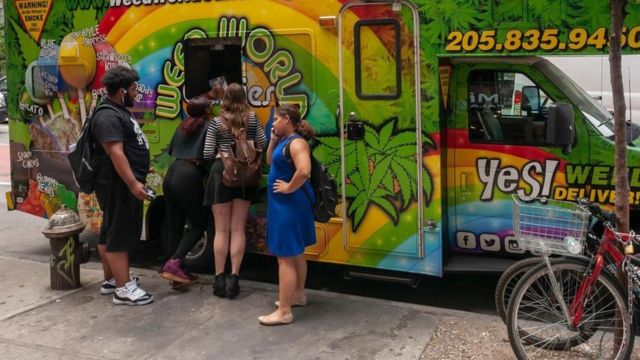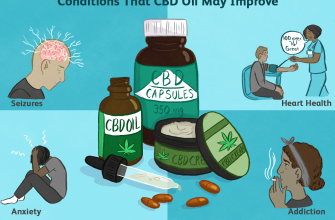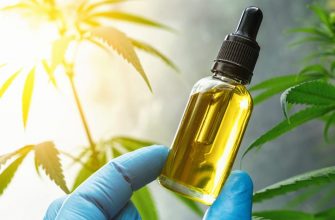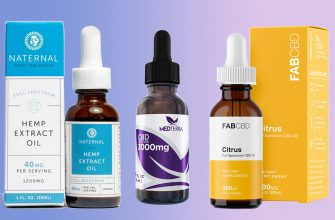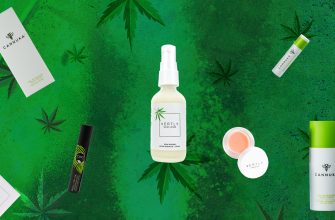Products with cannabidiol, a non-psychotropic substance found in cannabis, have recently gained immense popularity in the United States, growing into a billion-dollar industry. BBC Capital explores the legal, scientific and commercial aspects of this phenomenon.
Liquid for electronic cigarettes and vapes, pain-relieving creams, plasters and candies for every taste (gummy bears and snakes, colorful candy), as well as capsules and mixtures.
Cannabidiol, more commonly known as CBD (CBD), is a natural extract of cannabis or regular hemp. Recently, CBD has gained such popularity in the United States that it is difficult to imagine a place where it is not sold, or diseases that are not treated.
According to users, they take it for muscle pain, arthritis and anxiety. CBD helps with epilepsy and PTSD.
Cannabidiol is even added to pet food. There is, for example, CBD oil for dogs – bacon-flavored, of course.
CBD marketing firm Brightfield Group estimates that the product will cost $ 5.7 billion to produce this product next year, rising to $ 22 billion by 2023.
Research Group Leader Bethany Gomez notes that the growth of the market leader in the production and sale of hemp-based products Charlotte’s Web Holdings was 172% in 2016-2017, and in 2018 reached 89 million dollars.
Unsurprisingly, this controversial sector is actively attracting the attention of investors, including from rather unexpected industries.
However, Coca Cola declined to provide a more detailed commentary.
When the Brightfield Group released its industry forecasts late last year, many were surprised. But three days later, the media reported that Coca Cola was looking into CBD production and questions were dropped.
“If you look at the total sales of all CBD products today, and add the chain retailers and pharmaceuticals that dream of becoming players in this market, you can expect a tremendous change.”
At the forefront
Zsolt Chenka is one of the fans of the new industry. He is the founder of Adriaen Block, New York’s first CBD restaurant and bar.
Chenka says she creates low-alcohol cocktails with berries and herbs, following recipes from the 16th to 17th centuries. But he also adds CBD oil to them, thus combining tradition and modernity.
At his restaurant, CBD is also added to sauces, such as the pepper sauce with which New York steak is served, or French sauces demi-glace, berban and béarnaise.
But what does science say? Apart from the rather obscure concept of “healing”, there is no concrete evidence yet of how CBD affects the human body.
“I could not relax at night and fall asleep, there was a feeling of anxiety,” says Zsolt Chenka.
“But after two drinks with CBD or a few drops in coffee, the head clears up and the relaxation sets in. I wouldn’t sell something I don’t believe in myself.”
“However,” adds Chenka, “we are only offering experiences, not magic cures or advice. We help people expand their experience and reduce anxiety and stress.”
Who is the buyer?
Who exactly buys cannabidiol products? According to a survey of 5,000 CBD consumers that Brightfield Group conducted last summer, millennials were the first to buy CBD after it was legalized in various states.
They are followed by buyers in their 30s, among the forties, demand is gradually decreasing, but again increasing in the age group from 50 to 60 years.
There are roughly equal numbers of women and men among CBD consumers, however, as Gomez notes, there were more women in the past.
Now attention! CBD products are sold almost everywhere in the United States, but buying them in all 50 states and in any form is breaking the law.
How can this be when at least nine states have legalized recreational marijuana use?
The problem is the conflict between federal and state law, and the difference between the two types of cannabis: marijuana and hemp.
Consumers are interested in two types of hemp extract: THC (tetrahydrocannabinol), which has a psychotropic effect, that is, it changes consciousness, and CBD (cannabidiol), which does not.
Industrial hemp contains less than 0.3% THC, but may have high CBD levels.
On the other hand, marijuana plants are commonly cultivated for their THC content.
In other words, cannabis is completely different from marijuana, but both types of cannabis were classified under US federal law as a Category 1 drug in the 1970s.
That is, the same as heroin and cocaine. And this definition is used to this day.
However, CBD remains in a gray legal area.
Many retailers believe that as long as they adhere to state law and do not ship their products across state lines (which is considered a drug trade), federal law enforcement agencies, such as the Drug Enforcement Administration (DEA), will turn a blind eye to their activities.
Restaurant owner Adriaen Block does not rule out the possibility that the DEA may one day round up his establishment, but he is well aware of the laws of the state, as well as the fact that the CBD that he uses in his products contains 0% THC.
Investors are in no rush
The unclear legal status of the substance in America makes potential investors, who are undeniably attracted by the profitability of the industry, to be extremely cautious.
On the other hand, Forbes called the CBD hype exaggerated and advised investing in Apple rather than weed.
Early last year, McConnell introduced a draft law that would remove cannabis from the list of substances controlled by federal law.
If the law is passed, hemp and its derivatives, in particular CBD, will be fully legalized.
A word to the scientist
Despite the popularity of cannabidiol and the evidence for its benefits, no large-scale controlled trials have been conducted on its effectiveness.
However, as noted by Igor Grant, Dean of the Faculty of Psychiatry and Director of the Center for Medical Cannabis Research at the University of California, there are undeniable prospects for the use of the substance in medicine.
The scientist cites several so far small studies that suggest that CBD may have anti-anxiety, anti-inflammatory and antipsychotic properties, and may also be beneficial in the treatment of schizophrenia.
“Cannabidiol is probably anti-inflammatory and may help with intestinal inflammation, such as Crohn’s disease or neurological diseases,” explains the scientist.
When it comes to using CBD in the “wellness” drinks or energy drinks that are so heavily advertised, their benefits have not been scientifically proven. As, in fact, many other fashion trends in the field of nutrition.
“This does not mean that these claims are false, as long as we simply cannot refute them or confirm them. Valium, for example, also helps with anxiety. But we do not add it to Coca-Cola so people can relieve stress.”
“The first thing we need to solve is legislative differences. And then wait for the conclusions of the research. Then we can advise people something specific,” the scientist concluded.

